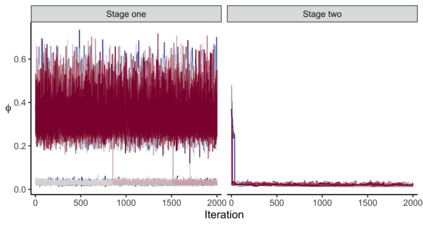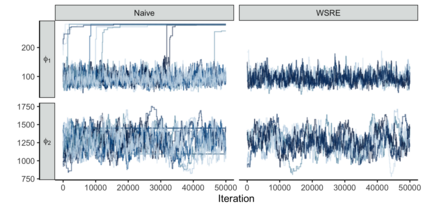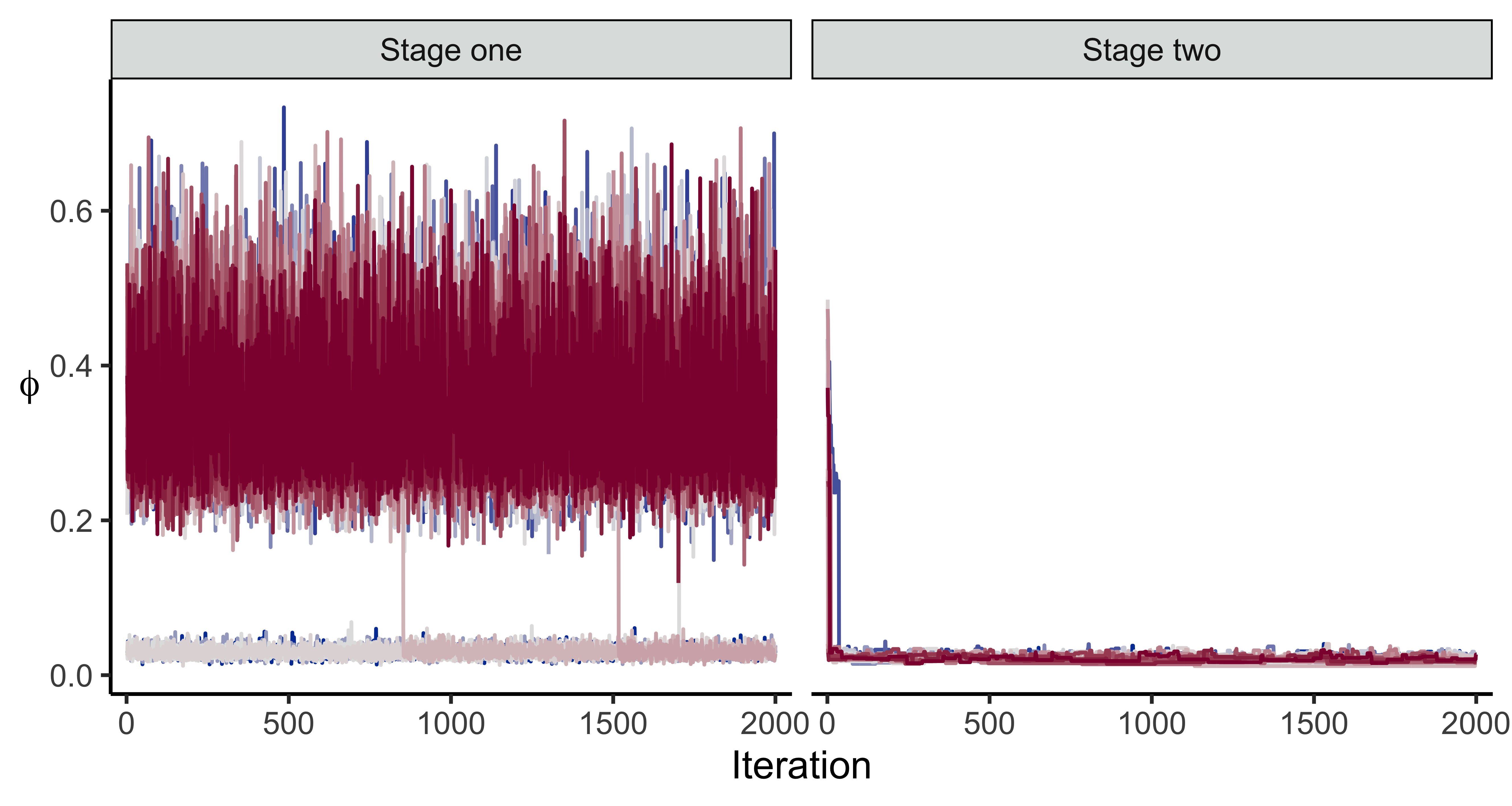When statistical analyses consider multiple data sources, Markov melding provides a method for combining the source-specific Bayesian models. Markov melding joins together submodels that have a common quantity. One challenge is that the prior for this quantity can be implicit, and its prior density must be estimated. We show that error in this density estimate makes the two-stage Markov chain Monte Carlo sampler employed by Markov melding unstable and unreliable. We propose a robust two-stage algorithm that estimates the required prior marginal self-density ratios using weighted samples, dramatically improving accuracy in the tails of the distribution. The stabilised version of the algorithm is pragmatic and provides reliable inference. We demonstrate our approach using an evidence synthesis for inferring HIV prevalence, and an evidence synthesis of A/H1N1 influenza.
翻译:当统计分析考虑多种数据来源时, Markov 焊接提供了一种方法, 将特定来源的巴耶斯模式结合起来。 Markov 焊接将具有共同数量的子模型组合在一起。 一个挑战是, 之前的这一数量可以是隐含的, 其先前的密度必须估算。 我们显示, 密度估计中的错误使得Markov 焊接不稳和不可靠时使用的双阶段的Markov 链 Monte Carlo 取样器成为了马可夫 焊接不稳和不可靠的。 我们提出了一个稳健的两阶段算法, 用加权样本估算所需的先前边际自我密度比率, 大幅提高分布尾部的准确性。 稳定的算法版本是务实的, 提供了可靠的推论。 我们展示了我们使用证据合成的方法来推断艾滋病毒流行率, 以及A/H1N1流感的证据合成。












